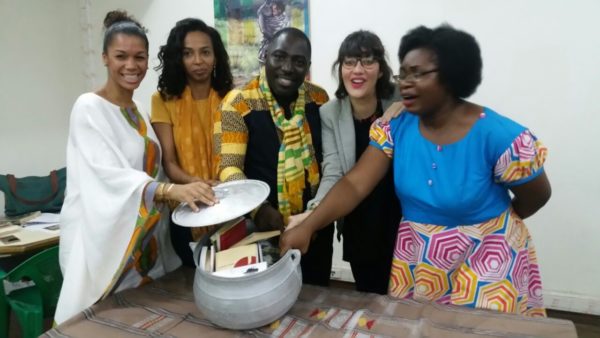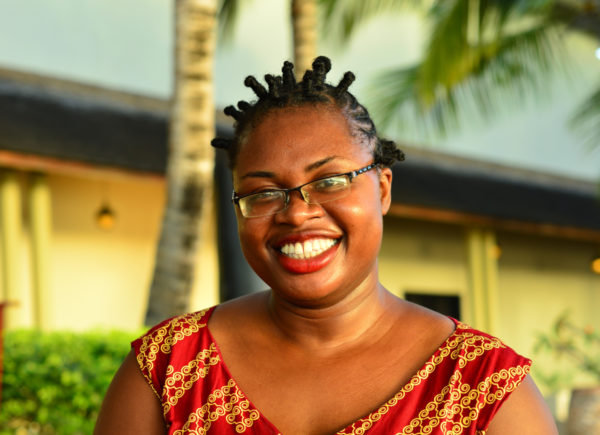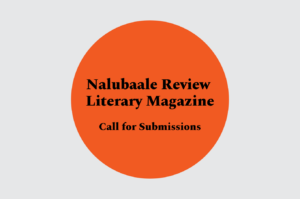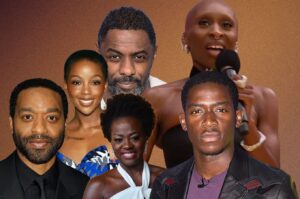
Last month, Africa39 author Edwige-Renée Dro was interviewed by 2014 Caine Prize finalist and The Johannesburg Review contributing editor Efemia Chela. They discussed the Abidjan Lit collective and the movement it birthed in Cote d’Ivoire, a brand of literary activism aimed at “saying that in our country, Côte d’Ivoire, we read.” Other members of the collective are Sarah Mody, Laure Blédou, Sophie El-hajaj, and Cyriac Gbogou.
The conversation also touched on the translation problems on the continent, the current state of Ivorian literature, the Francophone-Anglophone literary relationship, and on two novels that have generated two of the year’s most important debates: Fiston Mujila’s Tram 83 and Jennifer Makumbi’s Kintu.
Read an excerpt below.

Efemia Chela: We’re definitely seeing a move towards promoting fiction in translation overseas, with Rochester University especially trying to tackle the ‘three per cent’ problem, where about only three per cent of the books published in the US are works in translation. The Man Booker International Prize notably also increased the prize share for the translator of the winning book. Readers also seem to enjoy good translation. Books like Elena Ferrante’s Neapolitan Quartet and Han Kang’s The Vegetarian are bestsellers and are picking up nominations and awards. What do you think has sparked this change, and what effects do you think it will have on books by African writers?
Edwige-Renee Dro: Well, the change has been sparked by curiosity. There is so much literature out there, so much of it beautiful, varied and producing different kinds of conversations. Sometimes I read discussions on Facebook about, oh, that Tram 83 book, and there were all these discussions, and I was like, oh the Anglophones have started again. Yes, I read that book twice, once before it was even going through the translation process and then another time when the translation came out, and I wanted to read it in French again. I like both the translation and the original, actually, but I read the conversations and I was like, people, sometimes in the Francophone African literary world, at least, the beauty of that French language and the colour have to play a role. But the change is sparked by curiosity. I even want to learn Spanish so I can access more literature, because can you imagine what else is out there that we are not accessing?
As for the effect on books by African writers … have we sorted out the discussion of what an African writer is yet? [Laughs] We waste some time on shit on this continent and in our diaspora, I tell you.
That was an aside. Not every book produced by an African writer is going to be translated into English or Portuguese or Swahili, simply because for a publisher to decide to translate a book, they must decide if it makes some sense, and I suppose, commercial sense. Publishers are not charities.
I think the climate we have today should be seen as an opportunity that has been afforded to us as literary actors from Africa. I say literary actors or even cultural actors in Africa because I was on a panel with my dear, dear writer-friends Abubakar Adam Ibrahim and Odafe Atogun recently, and one participant said that we were focusing on translating into European languages but what about translating into, say, Hausa, because how are our children going to learn our languages otherwise? See the responsibility that some people want writers to have? I write. I translate. I edit. I’m not an ethnologist. I’m not the minister of culture. I’m not a dean of a university.
Where are the training programmes for aspiring translators or editors? How many departments for literary translation do we have in our universities in Africa? How many publishing houses do we even have in our countries? Cassava Republic can’t do everything, great and fabulous they are. Farafina can’t do everything. Jimsaan cannot do everything.
So whatever effect this boom in translation will have on literature from Africa is what we as actors will do, and we need to have the conversation among ourselves first. We get annoyed when Aaron Bady writes an introduction to Kintu, we accuse the West of only wanting literature from Africa that does the apology of poverty, we bemoan the fact that African literature is being discussing in London, etc etc. But let’s go beyond bemoaning now. What are we doing?
I was at Writivism last year and there was a participant who said, ‘And of course we welcome here our Francophone colleagues who write in a colonial language.’ I had to laugh. Do you think it is only you, the Anglophones, who have managed to bend English and the rest of us are speaking like Molière? I read a paper where Bernard Dadié had to be described as the Chinua Achebe of Ivorian literature. Did I write a Facebook post about it? I didn’t, because that paper is targeted at an Anglophone audience—by the way, it is an African paper, not one sponsored by the West—and Dadié is not as well known as [Ahmadou] Kourouma, say. That is the reality. Again at Writivism, the organisers set up a panel on literary translation, but when it was happening I think we had one or two other guests in the room with us. Everybody else went to talk about sexual harassment because they could harangue better, I suppose. So let’s not behave the way we ourselves do, and then get up in arms about what the West is promoting. To paraphrase de Gaulle, ‘People don’t have friends, they have interests.’ We should be deliberate about the literature we want to come out of this continent. We should be deliberate.
Read the full interview HERE.









COMMENTS -
Reader Interactions